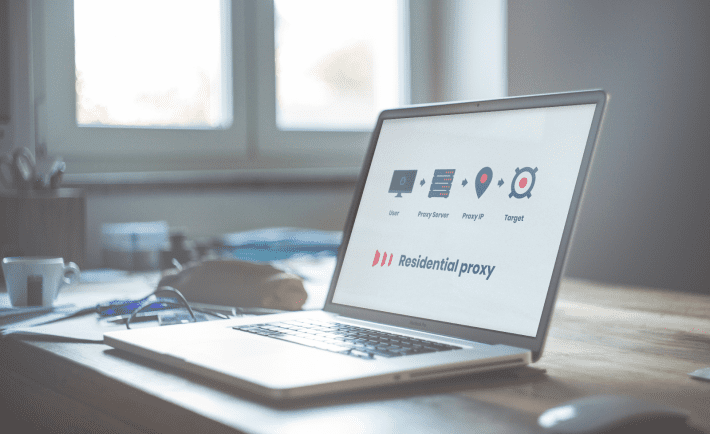
The modern internet is full of privacy threats coming from all sides. In the past, new web surfers heard stories of hackers that infiltrated our networks and distributed viruses and malware. While the danger of cybercriminals remains, today we have new concerns – the ever-growing influence of tech companies and their management of user data.
Of course, we cannot ignore the efficiency and convenience new software and social media networks bring to our lives. Almost every new registration can be accelerated by creating links to our Google, Facebook, and Twitter accounts. When we seek entertainment, constantly improving algorithms always seem to find the content the users desire. Even modern advertisements offer personalized products instead of bombarding users with useless information. However, no matter how convenient these services are, such improvements disturb modern internet users. It feels like the systems we use know us too well as if we are being watched.
To receive the benefits and efficiency offered by modern information technologies, we, the consumers, have to bid farewell to online privacy. Tech companies manage to keep improving their products thanks to the aggregated public information of their users. An average consumer can barely notice the invasion of privacy when the systems around them keep improving and offering attractive products and features. Because most internet users do not take online anonymity seriously, the disregard of privacy on the web has reached the point of no return. The days of online confidentiality are long gone.
However, just because most of our actions on the web leave a permanent footprint does not mean that we cannot utilize privacy tools to minimize the exposure of private data and raise awareness for anonymity and humane technology. Today, most web surfers are aware of the lack of privacy online and look for solutions to feel safe on the internet. The demand for privacy tools has forced even technically illiterate users to seek out proxy servers – middlemen servers that redirect our connection to mask your IP address, which contains valuable personal information.
There are many types of proxy servers, and each of them serves a unique purpose in altering the user’s browsing experience. Datacenter proxies are the cheapest option that offers the best speed and suits the needs of an individual interested in online anonymity. However, two other types have unique functionalities that make them valuable assets in a digital business environment: ISP proxies and residential proxies. In this article, we will talk about the difference between these intermediary servers when ISP proxies are the most effective, and when you can get the same results with residential IPs. Visit this website if you are interested in in-depth technical information about these servers that may not be covered in this article: https://proxyway.com/best/isp-proxies. Let’s start discussing the difference between ISP and residential proxies!
Modern businesses need proxy servers

In the past few years, internet anonymity tools have been receiving increasing attention because internet users want to minimize their digital footprints and protect the information they do not want to expose. The same rules have greater significance for companies that depend on information extraction to keep an eye on their competitor and make calculated business decisions.
Price wars and digital marketing campaigns are the main niches that depend on proxy servers. Businesses use web scraping bots to accelerate public data extraction from other players in the market to gather price intelligence and make sensitive adjustments to stay ahead of the competition. Digital marketing campaigns also depend on information extraction from search engines and social media networks to find the right influencers and public persons and offer them advertisement deals. Personalized advertisement is much more effective than ads on TVs and radio, and companies can extract information from the internet to find the most suitable representatives for their product.
The security and anonymity of residential proxies
Residential proxies are effective identity shields because their IP addresses come from real devices serviced by internet service providers. That makes the users behind the proxy much harder to recognize compared to datacenter proxies. Unfortunately, anonymity comes with a price, and residential proxy servers are usually pretty expensive.
Businesses use a pool of residential proxy IPs to assign unique, rotating identities to web scraping bots. If the recipient web server stops the data aggregation in its tracks, the company does not risk its network identity, and the banned IP is quickly replaced by a new residential address. With many locations around the world and diverse subnets, these proxies are often used due to their high level of anonymity.
ISP proxies – datacenter and residential proxies combined

ISP proxies fix the weaknesses of residential proxies – inferior internet speed and unstable connections that can be disrupted if the end-user behind the address suddenly disconnects. While these disadvantages are tolerable for web scraping tasks, for other goals, such as the management of social media accounts, we need an alternative solution that combines data center and residential proxies.
With ISP proxies, the datacenter IPs are registered with internet service providers. When compared to residential proxies, they offer a speed improvement, while anonymity remains at a respectable level. Because the supplied addresses come from data centers, they have fewer available locations and lower subnet diversity than residential proxies. ISP proxies are more suitable than residential IPs when the use cases depend on stability and not anonymity alone.
ISP and residential proxies share similarities but serve different purposes in a digital business environment. With a good proxy server provider, companies can get both of these proxy types to possess the best possible tools for every situation.




